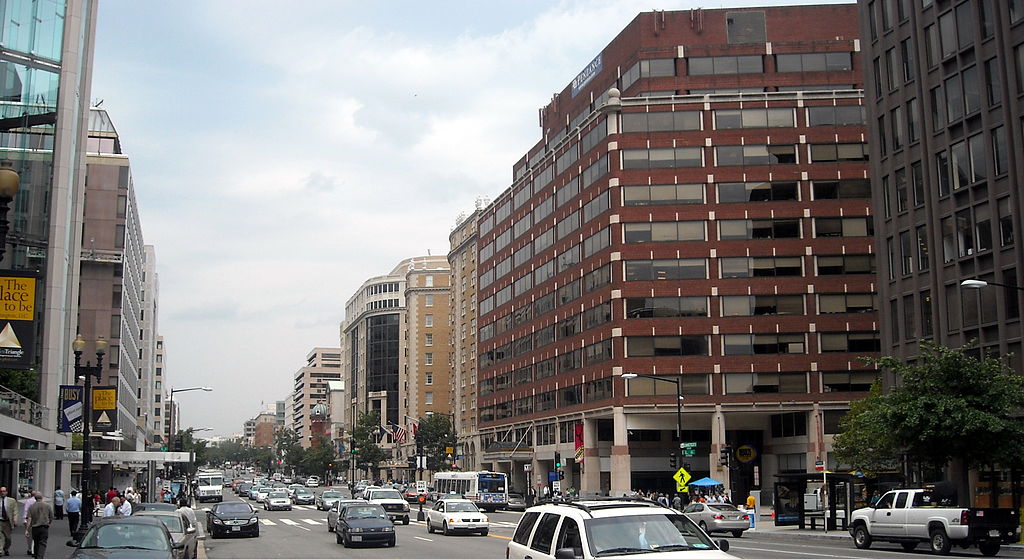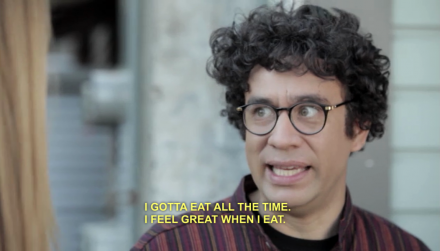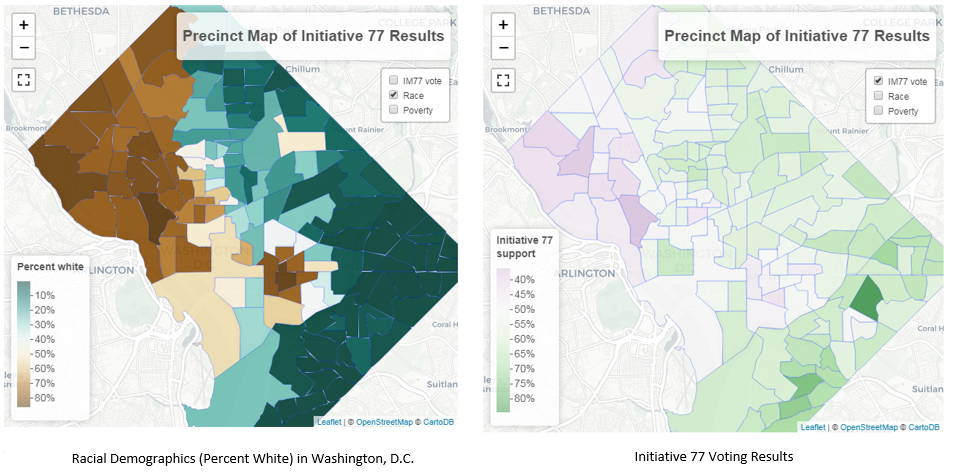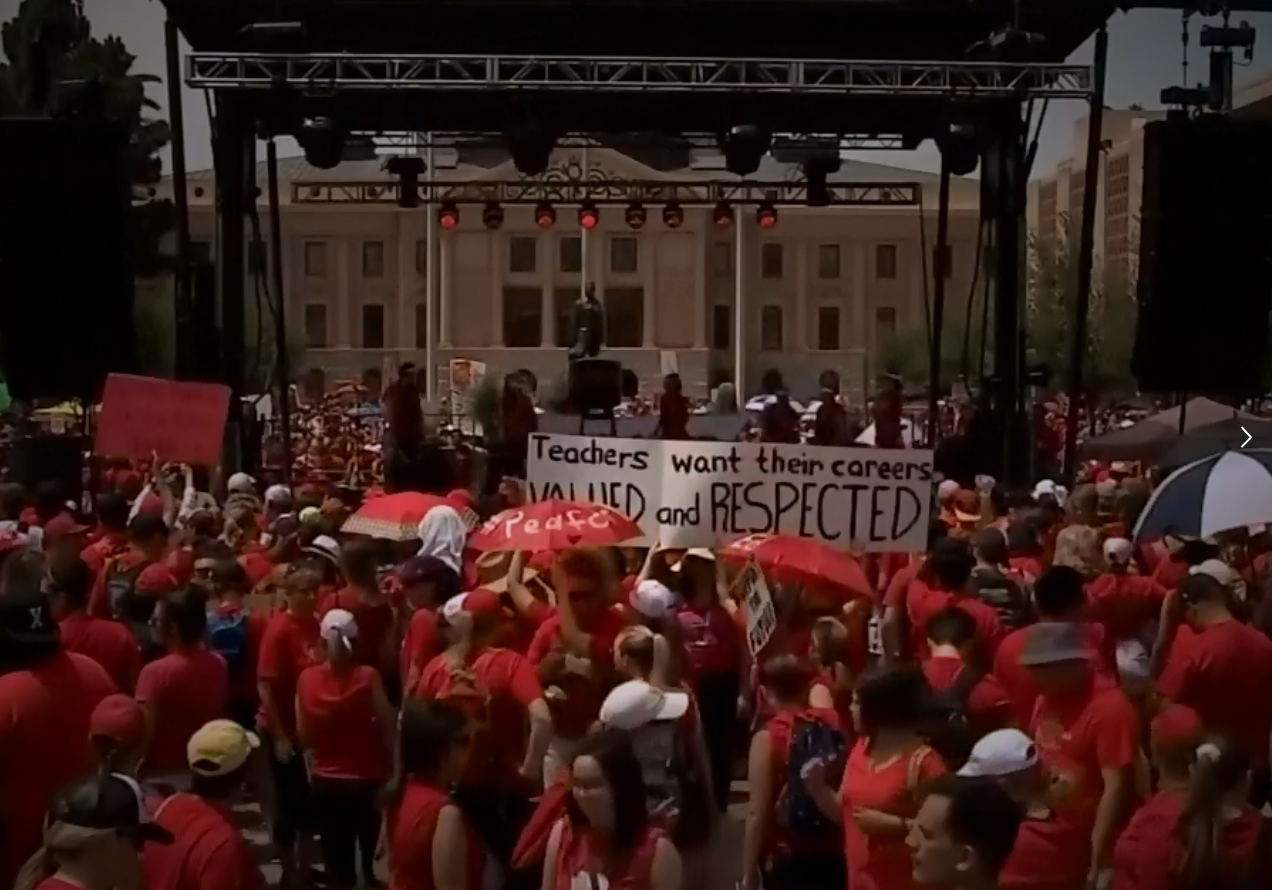I Just Learned that Tipped Minimum Wages Exist and I’m So Confused

Washington, D.C. recently voted to pass Initiative 77, which will raise the minimum wage that employers are required to pay their tipped employees in the District from $3.33 to $15 an hour by 2025, so that by 2026 the same minimum wage will apply to tipped and non-tipped workers alike. This is a great victory for the 30,000 tipped workers in the city, and will place the nation’s capital among the seven other states that have already adopted One Fair Wage.
I grew up in Oregon, which is one of those states. I knew places had tipped minimum wages, but it was a far-off concept that I didn’t think happened all that often—like fire tornadoes or peanut butter pepperoni pizza. So when I heard about Initiative 77, I thought it would be a no-brainer to fix this antiquated idea that it’s legal for employers to pay tipped staff less than a third of the minimum wage and expect customers fill the gap (and while the law says employers have to fill that gap if tips don’t cover it, employers have been shown to fail at doing even that). But the hard fought, sometimes brutal battle surrounding this initiative shocked me.
 In particular, I was surprised at the doom and gloom surrounding “the future without tips”. Growing up in Portland, Oregon—a place well known for its quirky local restaurants, vegan breweries, and free-range food-trucks (Portlandia jokes aside)—I and everyone I know regularly tip for services. And we’re well within the norm. Tipping was and is still very much a part of my interactions with wait staff, bartenders, hairstylists, and rideshares.
In particular, I was surprised at the doom and gloom surrounding “the future without tips”. Growing up in Portland, Oregon—a place well known for its quirky local restaurants, vegan breweries, and free-range food-trucks (Portlandia jokes aside)—I and everyone I know regularly tip for services. And we’re well within the norm. Tipping was and is still very much a part of my interactions with wait staff, bartenders, hairstylists, and rideshares.
Over the past few months, I have heard people say that eliminating the tipped minimum wage will eliminate tipping completely, since workers will be making minimum wage and customers will stop tipping as a result. My experience—and the research—has proved this to be incorrect. In states that have eliminated tipped minimum wages, customers still tip and the restaurant industry has continued to grow. Furthermore, tipped workers in these states experience smaller gender wage gaps and lower poverty rates, especially among women of color.
At its heart, this conversation is steeped in our culture—a culture tinged with sexist and racist perceptions about tipped workers and the value of their work. The power dynamics at play in our tipping culture open the door for abuse, harassment, retaliation, and degradation. Sexual harassment is particularly problematic in the restaurant industry, and servers are frequently at the mercy of customers who subject them to harassing comments and unwanted touching. Women in particular have spoken time and time again about sexual harassment throughout their work days, often having to decide between earning a tip and speaking out. Black and brown women face the added challenges of racist biases and perceptions of their work, and of societal expectations that they will silently endure and accommodate everything, including harassment.

It’s very telling that the parts of the city that voted against the initiative are in the most predominantly white corridors, while the supporters are in predominantly Black and brown parts of town. The opponents of this initiative were largely restaurants in “trendier”, wealthier parts of town. I heard from many white, male bartenders scared of losing their large tips. I hardly heard from immigrant tipped workers or workers in smaller or chain restaurants outside of these hotspots. Those I did hear from were fearful of using their last names or identifying where they worked. Again, what is this demonstrating about the power structures at play in this city?
I tip because an individual is working to provide me with a service. I value their work and respond accordingly, as I was raised to do and as was expected growing up in Portland (where again, there hasn’t been a tipped minimum wage during my lifetime). Will eliminating the tipped minimum wage in DC change my behavior? Of course not. The service isn’t changing, and the minimum wage still isn’t anywhere close to a living wage.
The only thing that’s changed is that tipped workers will have steadier paychecks from their employers, rather than having their income almost entirely dependent on customer tips—and the implicit and explicit biases that go along with them. They will also have more power to put a stop to harassing behavior from customers who use the threat of “losing your tip” in coercive and degrading ways. And finally, tipped workers of color will be more equitably compensated for their work all over the city.




